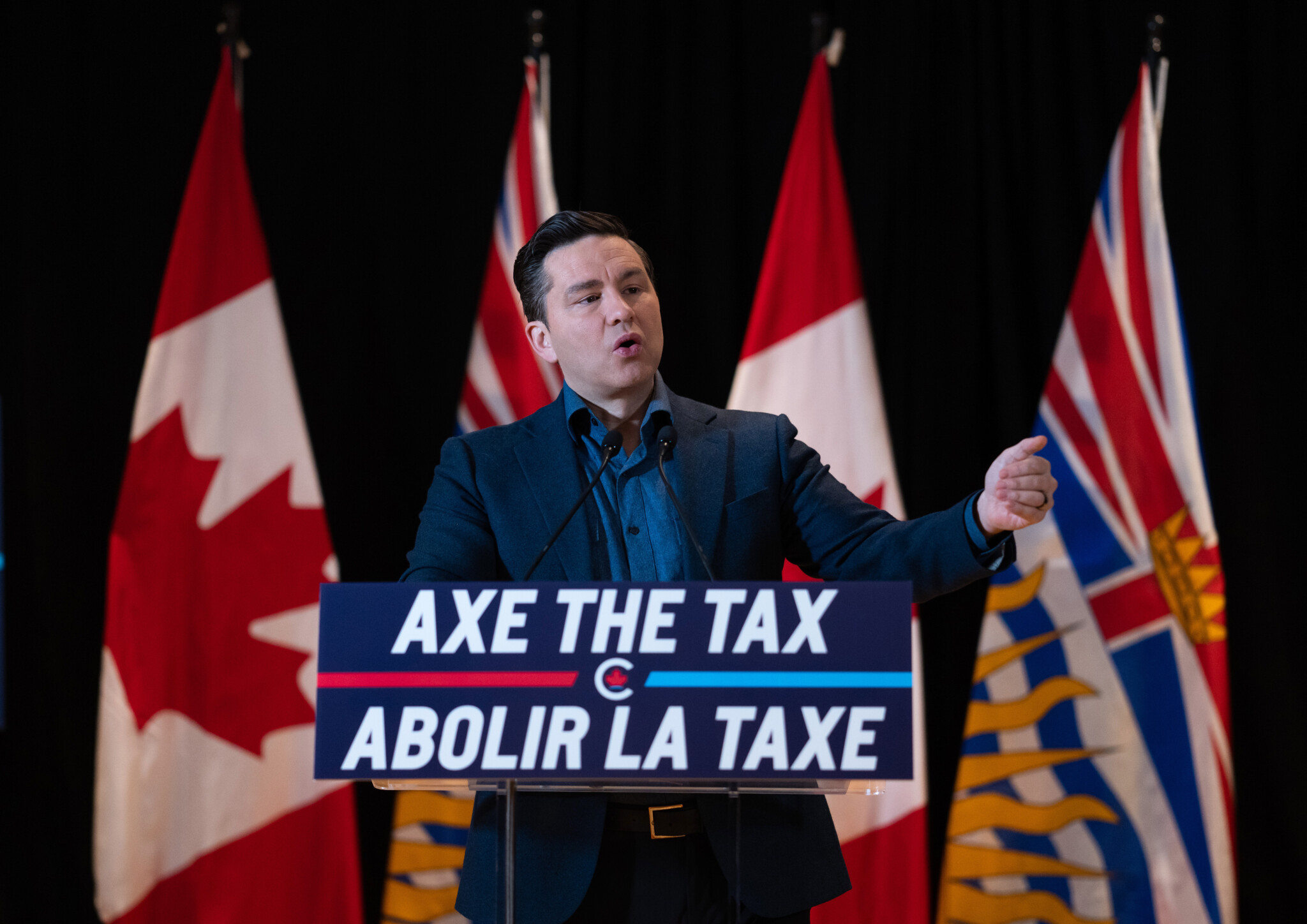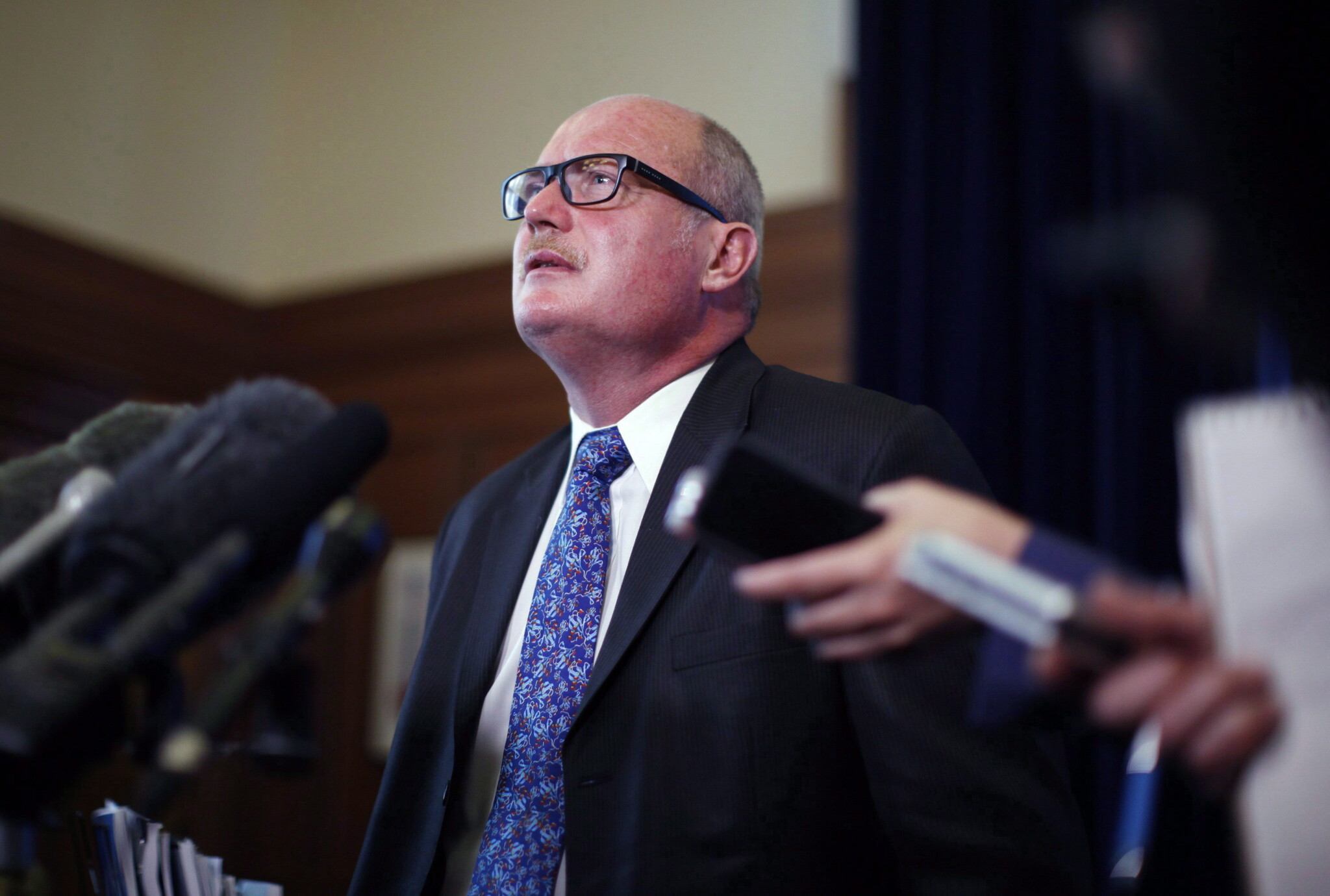Controversy over the Conservative Party’s nomination process in the safe riding of Abbotsford-South Langley could end up costing the party the seat, as a former provincial minister and long-serving MLA who says the party unfairly rejected him mounts an independent campaign.
In an interview with The Hub, Mike de Jong, who represented the Abbotsford area in the B.C. legislature from 1994 to 2024 as a B.C. Liberal and United MLA says he was barred from seeking the federal Conservative nomination after the party deemed him “not qualified.” This was despite him gaining unanimous support from the local candidate selection committee and serving as B.C.’s finance minister, who balanced five budgets. Some had hypothesized he could have been a key minister in a potential Poilievre government.
Instead, the party nominated Sukhman Singh Gill, a 25-year-old university student and blueberry farmer with an alleged past history of supporting the Liberals. Gill has received support from the Sikh political diaspora.
Unhappy with the process, unsure of why he was pushed aside, and under pressure from members of the community, de Jong decided to run as an independent.
And according to certain polls, he may end up winning.
Prior to riding restructuring in 2023, the Conservatives won a considerable number of votes in Abbotsford. The party received 48 percent in 2021, 51.4 percent in 2019, and 48 percent in 2015.
De Jong has also been endorsed by the politician who garnered those votes—retiring Conservative MP and former Harper cabinet minister Ed Fast.
“I’m confident that Mike has the resources and large team behind him to ensure that we elect this highly experienced friend of our community,” said Fast in a statement.
The Hub visited Abbotsford-South Langley in the final days of the campaign to get a sense of where things are at. We hoped to speak to both de Jong, Gill, and the party. However, only de Jong responded to our request for an interview.
Below is an excerpt of a conversation between de Jong’s and The Hub’s Ottawa Correspondent Élie Cantin-Nantel.
ÉLIE CANTIN-NANTEL: Why did the Conservative Party disqualify you? How did you feel about their decision?
MIKE DE JONG: When Pierre Poilievre announced he was seeking the leadership of the Conservative Party, I was the longest-serving MLA in B.C., and they [the Poilievre team] said I should endorse him. I said yes because I like it when people have the courage to talk about stuff that other people aren’t prepared to talk about. Then they said I should think about running for them. So just over a year ago, I made the formal announcement and put a team together. We sold 2,000 Conservative Party memberships.
The local riding association unanimously recommended that I be approved and unanimously recommended that the man who is now the candidate not be approved. They sent the party that recommendation. But I then got an email from party headquarters in Ottawa saying, “Your application to be a candidate has been declined. Thanks for your interest.”
I called because I wanted to make sure someone hadn’t pushed the wrong button on a form email or something. No one would say anything except one guy who said, “We didn’t think you were qualified.”
The hardest part about this was having to call party members and explain to them that when they would go out and vote in the nomination, I would not be on the ballot. We had some younger folks, 16, 17, 18, who were engaged with my campaign, they were enthusiastic, and when I had to tell them this, you could just see in their eyes, they knew this was all bullshit. And that’s hard.
ÉLIE CANTIN-NANTEL: Why didn’t you just accept the disqualification and support the Conservative candidate?
MIKE DE JONG: I never contemplated endorsing the Conservative candidate because I didn’t think the process was valid.
As soon as the vote happened, I got calls from long-standing Conservatives, who said, “I’m not going to vote for this Conservative candidate in a general election. That’s not right.”
Someone started a petition, and there was a kind of draft. I resisted it. I was not going to ask volunteers to go into another battle. We did some polling, to be fair. And I asked where we are in terms of money. Within a week, we had raised a significant amount of money. So it took away all my excuses.
The candidate that was manipulated into the position for the party is woefully inadequate and woefully incapable of speaking for my community, and has demonstrated that by failing to attend all candidates’ meetings that we’ve had. I’m not even sure he’s a conservative when you look at his previous social media activity.
ÉLIE CANTIN-NANTEL: Are you running against the Liberals, the Conservatives, or both? Isn’t your candidacy putting the riding at risk of vote splitting that could elect a Liberal?
MIKE DE JONG: The competition here is the imposed Conservative candidate. The Liberals will get their 25 percent of the vote, as they always do. But they won’t win. You don’t win with 24 or 25 percent.
I still want a Conservative government elected, despite what they’ve done, because the interests of the country are far more important than Mike de Jong’s feelings. The Liberal Party is the party that has made us weak over the last 10 years. The Liberal party under Mark Carney and his associates are still the group who believe the answer to every challenge is to go to the international financiers and borrow more money. And I don’t believe that.

Conservative Leader Pierre Poilievre speaks during a news conference in Vancouver on Monday, Nov. 13, 2023. Ethan Cairns/The Canadian Press
ÉLIE CANTIN-NANTEL: A lot of people want to elect Pierre Poilievre. Why should pro-Poilievre voters in Abbotsford vote for you instead of the official Conservative candidate?
MIKE DE JONG: People should vote for me because I am a voice for the people, I’ve got a track record of conservative principles in government, a track record of fiscal management. Is there another former or current finance minister that has balanced five budgets in a row?
I’m supportive of Mr. Poilievre and the Conservative Party becoming government. I would provide that support in a parliamentary setting. But I would also bat for my community in ways that the manipulated designated candidate clearly would not.
Electing me would also send a message to political parties of all stripes, all of whom have gravitated to this notion of centralized control, that they should take a breath and understand that their strength as a party emanates from people on the ground and local folks.
ÉLIE CANTIN-NANTEL: You were a BC Liberal MLA and a minister. And you said you had not been a federal Conservative Party member for 40 years. Have you voted Conservative in the last three federal elections?
MIKE DE JONG: Yes. Also the BC Liberal Party was a coalition of conservatives. We were the free enterprise coalition.
ÉLIE CANTIN-NANTEL: If you win on Monday, and the Conservatives then invite you to join their caucus, would you accept their offer?
MIKE DE JONG: I can’t think of a reason why I wouldn’t. But the prerequisite is the offer has to be made. I’ve never left the party. The party left me. My principles haven’t changed. All of the things that align me with the party remain, including my intention to support the party, hopefully with it being a governing function.
ÉLIE CANTIN-NANTEL: What are voters telling you about your candidacy?
MIKE DE JONG: There’s been tremendous support identified. I haven’t had this kind of a reaction before. People are coming in unsolicited with 20 or 50 bucks to donate. But I’m also aware of the flip side of the argument, which is, there are very few independent candidates who are elected.
There is also a perceived insult amongst people here over what happened with the nomination process. The people who know what happened are angered by it.
ÉLIE CANTIN-NANTEL: You and your campaign have criticized the Conservative candidate for being a 25-year-old “student working for a family farm.” As a member of Gen Z, I see value in electing young people, as well as those with a diverse occupational backgrounds. So why target the Conservative candidate for his age and occupation? Why not give this 25-year-old candidate a chance?
MIKE DE JONG: I was elected, as a school trustee, when I was 26 and then as an MLA at age 30. So I’m the last person that is going to attack one for that.
I value young people being involved. But that doesn’t justify manipulating someone into the position. That doesn’t justify imposing on a community a candidate who is seemingly incapable of fulfilling some of the fundamental prerequisites, which is meeting with people and discussing issues with them. When I ran in my first provincial election, I ran against the reigning monarch of B.C. politics, Grace McCarthy. We had six all-candidates meetings, and she beat me up in them all six times. But I went to every one of them, and I learned a hell of a lot. In the end, I won the election by 40 votes. I earned it. You’ve got to earn it.
If people prefer the 25-year-old student to the old guy, that’s fine, but you’ve got to respect the people, and you’ve got to stand up in front of them and answer their questions.
This conversation has been revised and edited for length and clarity.
Travel expenses for The Hub’s election coverage are made possible by the Public Policy Forum, the Rideau Hall Foundation’s Covering Canada: Election 2025 Fund, and the Michener Awards Foundation.










